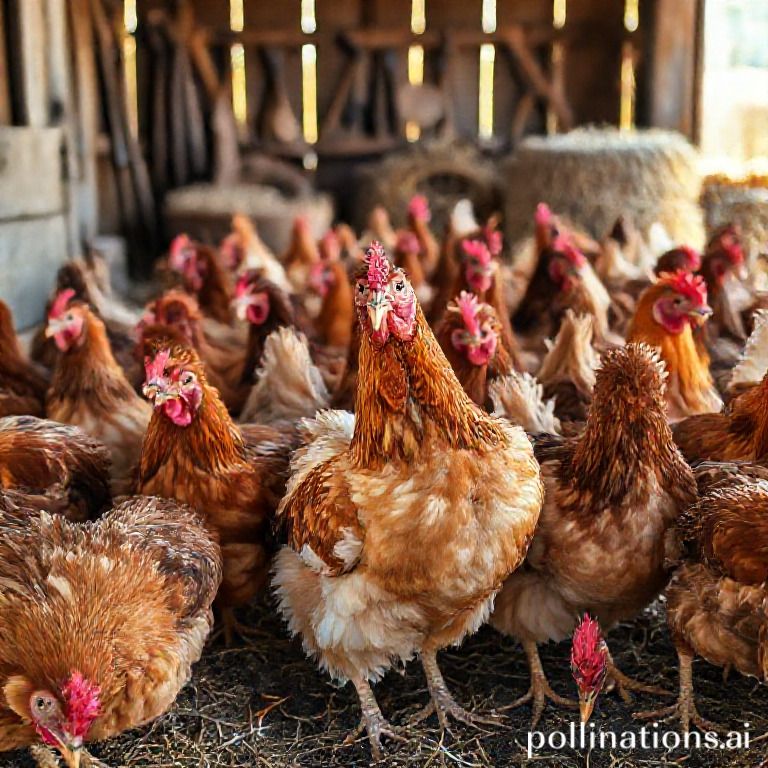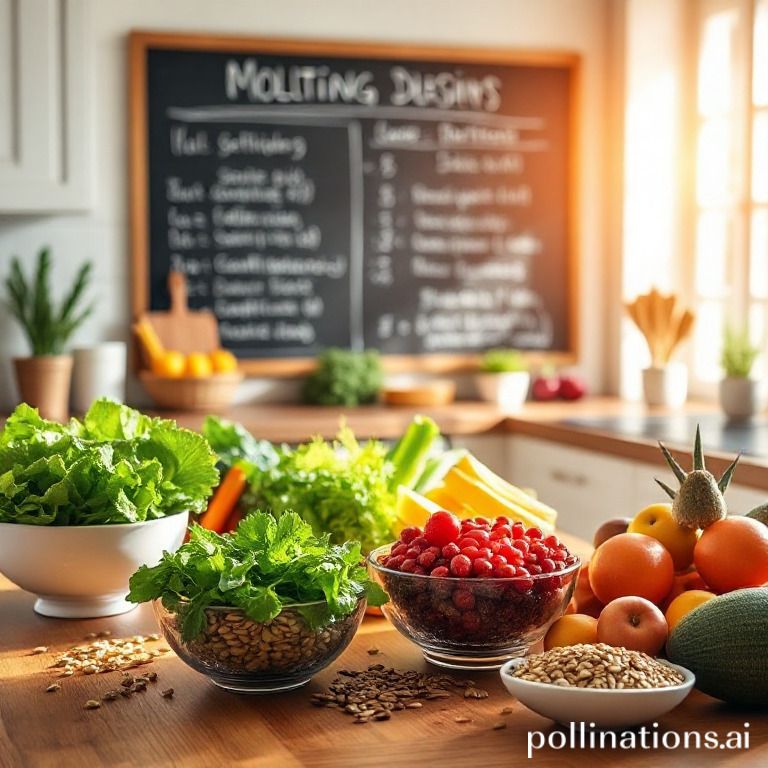Caring for your chickens during molting is crucial to ensure their health and happiness. Feathers play a vital role in protecting them from cold weather and predators, so it’s essential to provide them with the right nutrition during this process.
But what should you feed your molting chickens? In this guide, we’ll explore the best diet options to support healthy feather growth and overall well-being. From protein-rich meals to essential vitamins and minerals, we’ll cover everything you need to know to keep your chickens nourished and thriving during their molting phase. So, let’s dive in and discover the feeding secrets to help your chickens grow beautiful new feathers and stay strong throughout their molting journey.
Automatic Chicken Coop Door Opener – Solar Powered
Effortless Access for Your Flock
Nutritional Requirements for Molting Chickens
Throughout the molting process, chickens need specific nutrients to promote healthy feather growth and overall well-being. Here are some crucial factors to consider when feeding chickens during molting:
1. Diet rich in protein for feather growth
Protein is essential for the development of feathers in molting chickens. It supplies the necessary amino acids required for the formation of new feathers. Including high-quality protein sources in their diet is vital during this time. Options such as poultry meal, fish meal, and soybean meal are excellent protein sources for molting chickens.
2. Essential vitamins and minerals for a healthy molt
Vitamins and minerals play a crucial role in supporting the molting process and ensuring the overall health of chickens. Incorporate a variety of fruits, vegetables, and grains into their diet to provide essential vitamins like vitamin A, vitamin E, and vitamin D. Additionally, minerals such as calcium, phosphorus, and zinc are important for feather growth and maintaining strong bones.
3. Incorporating omega-3 fatty acids for strong feathers
Omega-3 fatty acids have beneficial effects on feather quality in chickens. These healthy fats contribute to stronger and more resilient feathers. Consider adding flaxseed, fish oil, or algae-based supplements to their diet to increase the omega-3 fatty acid content. This can help promote healthy feather growth and improve the overall appearance of their plumage.
By providing a protein-rich diet, essential vitamins and minerals, and incorporating omega-3 fatty acids, you can ensure that your molting chickens have the necessary nutrients to support healthy feather growth and maintain their overall well-being.

Recommended Foods for Molting Chickens
During the molting process, it is important to provide your chickens with a nutritious diet that supports healthy feather growth and overall well-being. Here are some foods that are recommended to include in their diet:
1. High-Protein Options
Protein is a key nutrient needed during molting as it plays a crucial role in feather development. Consider adding high-protein foods like mealworms and soybean meal to their diet. These options provide the essential amino acids needed for feather regrowth and help your chickens maintain their health during this period.
2. Leafy Greens and Vegetables
In addition to protein, molting chickens also need a sufficient intake of vitamins and minerals to support their overall health. Adding leafy greens and vegetables to their diet is a great way to meet these nutritional needs. Consider options such as spinach, kale, carrots, and broccoli as they are rich in vitamins A, C, and K, which are essential for feather growth and immune function.
3. Omega-3 Sources
Incorporating omega-3 sources into your chickens’ diet can provide multiple benefits during molting. Flaxseed and fish oil are excellent choices as they are rich in omega-3 fatty acids, which promote healthy feather growth and contribute to the overall health of the skin and feathers. Including these sources in your chickens’ diet can help them produce strong and vibrant feathers.
By offering a well-balanced diet that includes high-protein options, leafy greens and vegetables, and omega-3 sources, you can ensure that your molting chickens receive the necessary nutrients to support feather regrowth and maintain their overall well-being.
| Recommended foods for molting chickens: | ||||
|---|---|---|---|---|
| 1. High-protein options | – Mealworms | – Soybean meal | ||
| 2. Leafy greens and vegetables | – Spinach | – Kale | – Carrots | – Broccoli |
| 3. Omega-3 sources | – Flaxseed | – Fish oil |
Creating a well-balanced molting diet plan
Throughout the molting process, it is crucial to offer your chickens a balanced diet that promotes healthy feather growth and overall well-being. A carefully crafted molting diet can accelerate your chickens’ recovery and ensure they receive the necessary nutrients for optimal health. Here are some important factors to consider when designing a balanced molting diet plan:
1. Assessing the appropriate amount of protein for chickens
Protein is an essential nutrient for chickens during molting as it provides the necessary building blocks for feather growth. To determine the correct amount of protein for your chickens, take into account their age, breed, and size. Generally, chickens require a higher protein intake during molting, typically around 16-18%. You can supply this protein through a combination of high-quality feeds, such as soybean meal or fish meal, and natural protein sources like mealworms or black soldier fly larvae.
2. Balancing protein with carbohydrates and fats
Whilst protein is crucial, it is equally important to balance it with carbohydrates and fats to ensure a well-rounded diet. Carbohydrates provide the necessary energy to support the molting process, and fats facilitate the absorption of fat-soluble vitamins. Include a variety of grains, such as corn or wheat, to provide carbohydrates, and incorporate small amounts of healthy fats, like vegetable oil or flaxseed, into the diet. This balance of nutrients will help your chickens maintain their energy levels and promote overall health during molting.
3. Providing a diverse diet for overall health
In addition to protein, carbohydrates, and fats, it is crucial to offer a diverse diet to ensure your chickens receive all the essential vitamins and minerals. Incorporate a variety of fruits and vegetables, such as leafy greens, carrots, and berries, to provide vital vitamins and antioxidants. Furthermore, consider including calcium-rich sources, like oyster shells or crushed eggshells, to support strong eggshell production. A varied diet not only supports molting but also helps maintain overall health and immune function in your chickens.

Tips for Feeding Molting Chickens
During the molting process, it is crucial to provide your chickens with the proper nutrition to support healthy feather growth and overall well-being. Here are some tips to help you feed your molting chickens:
1. Ensure Access to Clean Water at All Times
Water is vital for your chickens’ health, particularly during molting. Make sure they always have access to clean and fresh water. This will keep them hydrated and promote the growth of new feathers.
2. Offer Small, Frequent Meals Throughout the Day
Molting chickens may have reduced appetites, so it is important to offer them small and frequent meals throughout the day. This will ensure they receive an adequate amount of nutrients without overwhelming their digestive system.
3. Avoid Excessive Treats to Maintain a Balanced Diet
In the course of treats can be a fun addition to your chickens’ diet, it is important to avoid excessive treats during the molting process. Focus on providing a balanced diet that includes high-quality chicken feed. This will provide the necessary nutrients for feather growth and overall health.
For a better Cognizing of what to feed molting chickens, refer to the following table:
| Food | Benefits |
|---|---|
| High-quality chicken feed | Provides essential nutrients for feather growth and overall health |
| Leafy greens | Rich in vitamins and minerals to support feather regeneration |
| Protein-rich foods | Assists in the production of new feathers |
| Grains | Provides energy for chickens during molting |
Monitoring the progress of molting chickens
Molting is a natural process in chickens where they shed and regrow their feathers. Chicken owners must closely monitor their chickens during this period to ensure their well-being. Monitoring the progress of molting chickens involves observing feather regrowth and condition, as well as assessing their overall health and behavior.
1. Observing feather regrowth and condition
Feather regrowth is a crucial indicator of a chicken’s progress during molting. Feathers are essential for insulation and protection, so it is important to ensure that they are growing back healthy and strong. To observe feather regrowth and condition:
- Inspect the feathers: Check for new feather shafts and the emergence of feathers. They should be firm and well-developed.
- Assess feather quality: Look for any abnormalities or signs of damage in the regrowing feathers. Healthy feathers should be smooth and glossy.
- Monitor feather loss: Keep track of any excessive feather loss, as it could indicate underlying health issues or stress.
2. Assessing overall health and behavior
Molting can be physically demanding for chickens, so it is crucial to evaluate their overall health and behavior. By monitoring their well-being, chicken owners can provide appropriate care and support. Consider the following factors:
- Appetite: Observe the chicken’s appetite and ensure they are eating enough to support feather regrowth. Consult a poultry nutritionist for guidance on an appropriate diet during molting.
- Activity level: Monitor the chicken’s activity level to ensure they are not excessively lethargic or showing signs of distress.
- Signs of illness: Watch for any signs of illness such as coughing, sneezing, or diarrhea. Seek veterinary advice if necessary.
- Social behavior: Pay attention to how the chicken interacts with other flock members. Unusual aggression or isolation could indicate stress or discomfort.
By closely monitoring the progress of molting chickens, you can ensure their well-being and provide the necessary care for optimal feather regrowth and overall health. Remember to consult with poultry experts or veterinarians for specific guidance tailored to your flock’s needs.
Conclusion
Proper nutrition plays a crucial role in supporting molting chickens and ensuring healthy feather growth. During this natural process, it is essential to provide them with the right diet rich in protein, vitamins, and minerals.
Feathers are primarily composed of protein, so incorporating high-quality sources such as soybeans or fish meal is vital. Additionally, including foods high in omega-3 fatty acids, like flaxseed or fish oil, can further promote feather health. By prioritizing their nutritional needs, we can help molting chickens successfully transition and develop strong, vibrant feathers. Remember, a well-balanced diet is key to supporting their overall well-being.
FAQ About Molting in Chickens
FAQ 1: What is the molting process in chickens?
Molting is a natural process in chickens where they shed and regrow their feathers. It usually occurs once a year and is triggered by changes in daylight and temperature.FAQ 2: How long does molting usually last?
Molting typically lasts for a few weeks, ranging from 2 to 6 weeks. The duration can vary depending on factors like breed, age, and individual chicken.FAQ 3: Can molting chickens still lay eggs?
No, molting chickens generally do not lay eggs during the molting period. Their energy is primarily focused on growing new feathers, and egg production decreases or stops altogether.FAQ 4: Are there any specific foods to avoid during molting?
At that juncture are no specific foods to avoid during molting, it’s advisable to provide a balanced and nutritious diet to support feather regrowth. Ensure they have access to high-quality protein, vitamins, and minerals.FAQ 5: How can I support my chickens’ overall health during molting?
To support your chickens’ overall health during molting, you can: 1. Provide a well-balanced diet rich in protein, vitamins, and minerals. 2. Ensure they have access to fresh water at all times. 3. Avoid stressing or disturbing them unnecessarily. 4. Maintain a clean and comfortable coop environment. 5. Offer occasional treats like mealworms or sunflower seeds for extra protein. Remember, molting is a natural process, and with proper care, your chickens will regrow their feathers and resume egg production in due time.Read Similar Post:
1. What Cities In Michigan Allow Chickens?
2. Why Do Chickens Eat Styrofoam?

